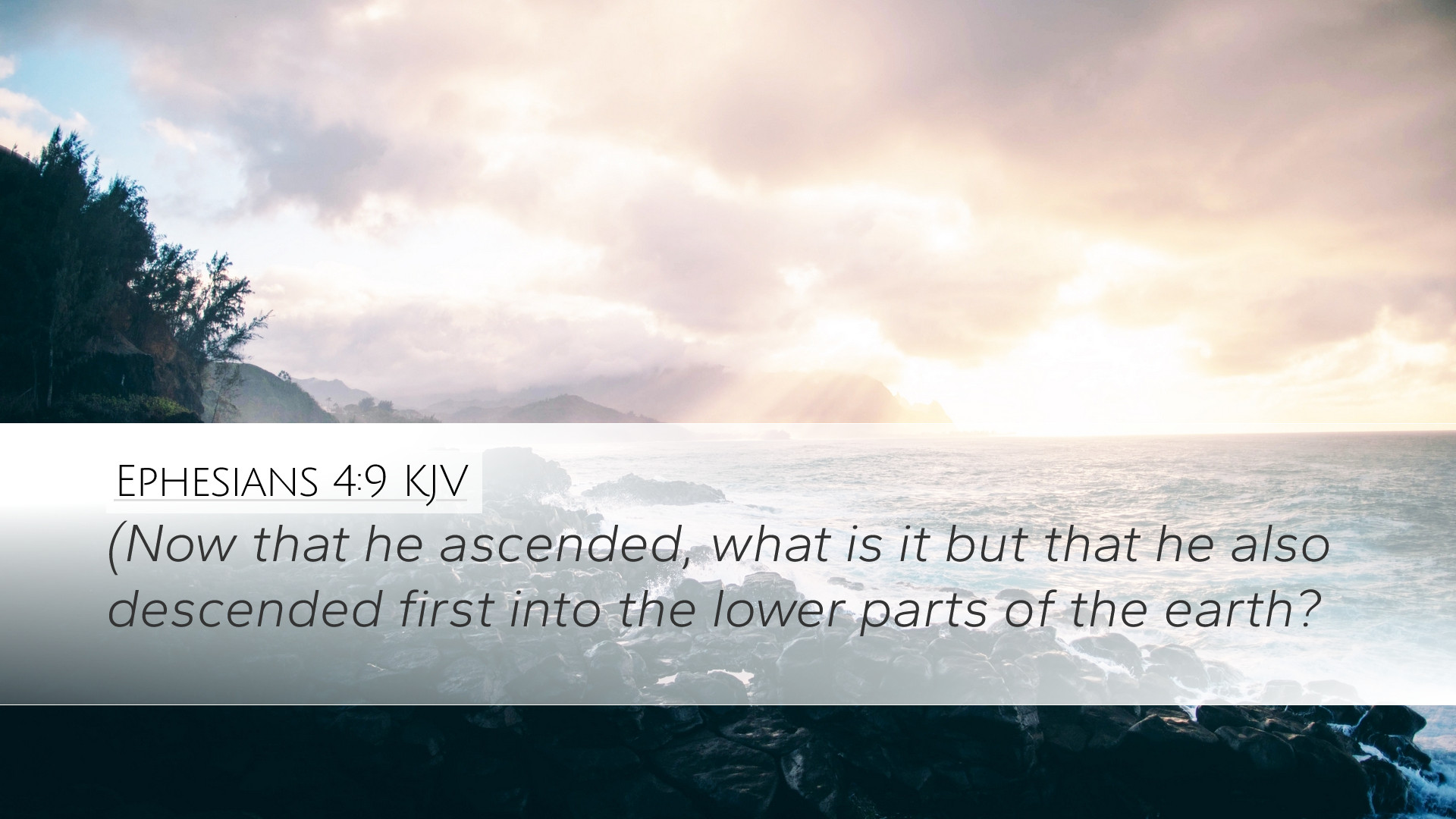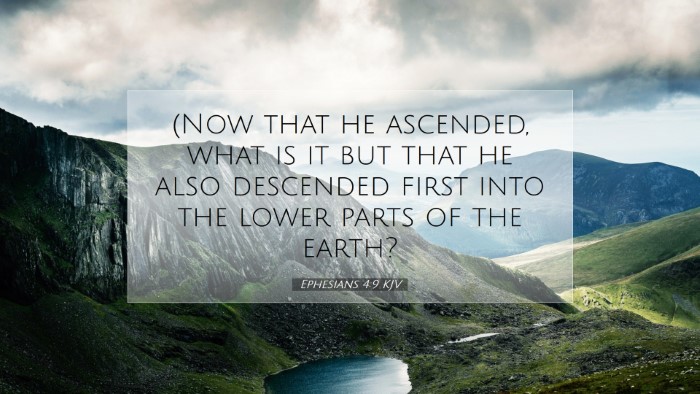Ephesians 4:9 - Commentary Summary
The verse Ephesians 4:9 states: "Now that he ascended, what is it but that he also descended first into the lower parts of the earth?" This passage holds a unique place within the broader context of the Apostle Paul's writings, particularly concerning Christ's redemptive work and His ascension.
Contextual Background
Paul's letter to the Ephesians is a profound theological discourse that combines doctrine with practical application. Ephesians 4 marks a transition from theological instruction to practical exhortation.
Interpretations and Theological Insights
Several public domain commentators offer rich interpretations of this text, providing depth to our understanding of both its immediate and overarching implications.
Matthew Henry's Commentary
Matthew Henry emphasizes the dual nature of Christ's descent and ascent. He points out that before ascending to the Father, Christ first descended to the realm of humanity and, by implication, to death itself.
- Descended into the Lower Parts: Henry reflects on the physical birth of Christ—His incarnation—as part of His descent. This descent also implies His suffering and sacrifice where, on the cross, He bore our sins.
- Significance of the Ascension: Henry posits that Christ's ascension signifies His ultimate triumph over sin and death, illustrating the fullness of His redemptive work.
- Unity and Gifts: He concludes that the entire process—from descent to ascension—serves to unify believers under Christ and equip them with spiritual gifts for service.
Albert Barnes' Commentary
Albert Barnes brings a meticulous analysis of the verse, directing attention to the implications of Christ’s descent. He elucidates that the “lower parts” of the earth may refer to the grave or even the abode of the dead.
- Importance of Christ's Descent: Barnes underscores the significance of Christ's descent, positing that it symbolizes His identification with human suffering and death. This connection is vital for understanding the completeness of His atonement.
- Emphasis on Ascent: The ascension serves as a confirmation of His victory, endorsing His divine authority to impart gifts to the Church. Barnes highlights that both the descent and ascent are instrumental in affirming the believer's hope.
- Practical Application: Barnes encourages readers to recognize that the gifts mentioned in Ephesians 4 arise from Christ's sovereign authority and should cultivate a lifestyle reflecting that divine endowment.
Adam Clarke's Commentary
Adam Clarke offers a theological perspective that delves into the mysteries embedded within the verse. His commentary addresses various interpretations while seeking to reconcile them coherently.
- A Dual Exploration: Clarke considers both the physical and theological implications of Christ's descension. He discusses the dual aspects of Christ's mission: His incarnation and what it meant for humanity.
- Categories of Descent: He proposes several interpretations regarding what is meant by "lower parts," suggesting it could pertain to Christ's role in ministering to the souls in Hades, thus emphasizing His dominion over all realms.
- Dynamics of Ascension: The ascension is depicted as a necessary step for the ongoing relationship between Christ and His followers. It facilitates the coming of the Holy Spirit and the distribution of spiritual gifts, enhancing the believer's mission.
Conclusion and Application
This verse, nestled within Ephesians 4, reveals profound truths that transcend historical context and speak powerfully to the believer's life. The duality of Christ's descent and ascent not only underlines His identification with human experience but also highlights His authority as the risen Lord, empowering the Church.
For Pastors and Theologians
In preaching this verse, ministers can underscore the importance of understanding Christ’s holistic work in salvation, reinforcing the narrative of hope and leadership. The narrative invites believers to embrace their spiritual gifts as manifestations of Christ's ascension.
For Students and Scholars
Students of Scripture are encouraged to explore the theological implications of Christ's descent and ascension. This exploration can lead to richer discussions on topics such as atonement, resurrection, and ecclesiology.


